Conker Gin
A quick glance at Conker Spirit distillery owner Rupert Holloway gives you the impression that he’s the kid whose conker would win. He’s determined, quietly stubborn and dead set on doing things his own way.
Founded in 2014, Conker Spirit was the first distillery to emerge from Dorset. This is something Holloway treated as a blessing when crafting his gin– the county is not steeped in traditions and there is no distilling heritage to stick to. Holloway could work from a blank canvas, taking a sip-by-sip approach when creating the recipe for his Dorset Dry Gin. The focus was only on quality. This has turned out a blessing, in our opinion; a quick glance at the scene five years on shows a couple of competitors – Pothecary, Lilliput – but if someone were to task us to name a Dorset Gin right off the bat, this is still the first we’d think of.
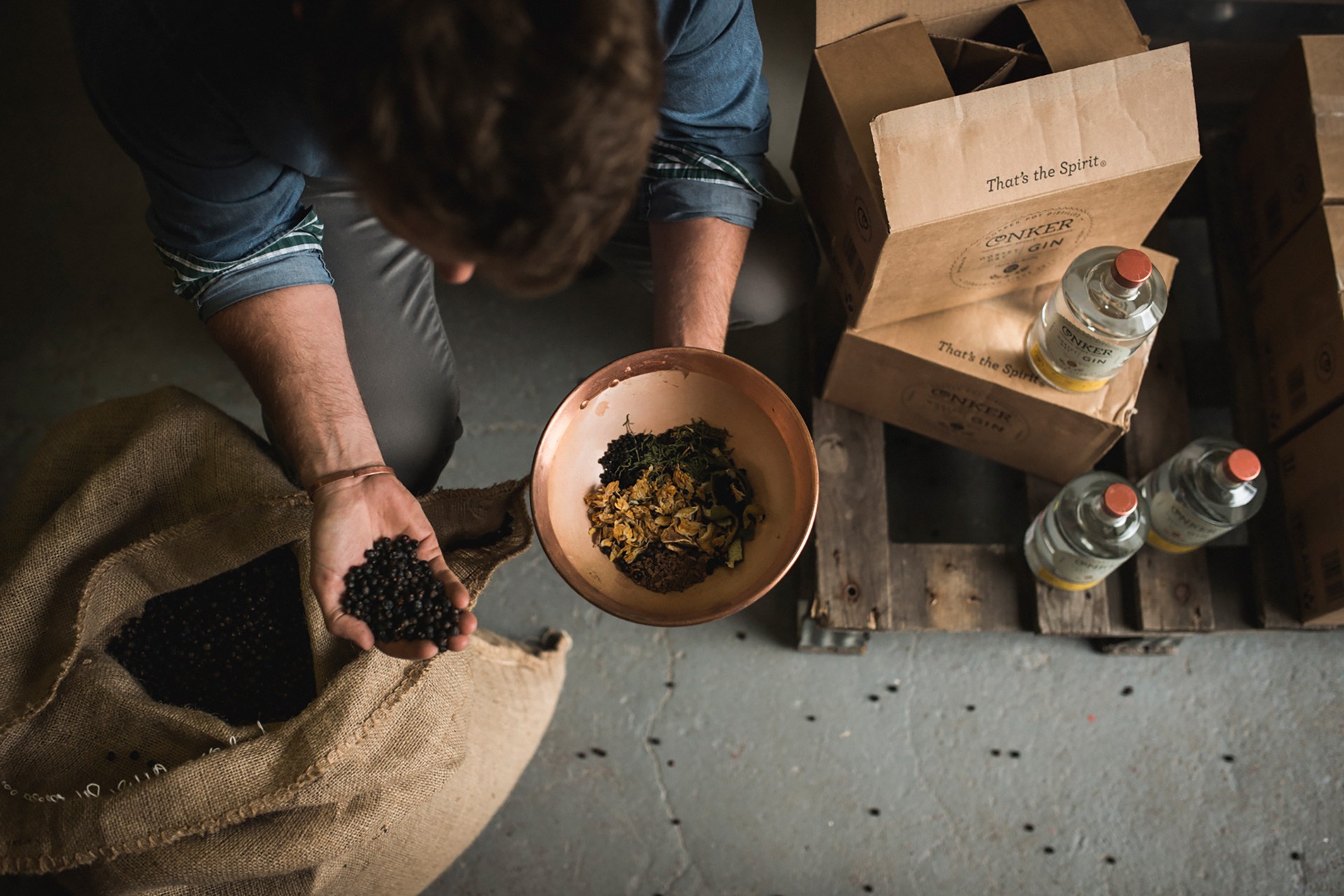
Though a little craggy around the edges now, Holloway was a fresh face in the drinks industry when Conker Gin launched. Prior to starting the distillery he worked as a chartered surveyor, a job in which days stretched on for weeks and weeks into years. When he hit 29, he had what he calls “an early midlife crisis,” and decided to get out of there, deciding, quite suddenly, that he’d be “bitterly disappointed if I retire or die doing what I currently do for a living.”
A peak at Holloway’s blog shows his positivity and determination – every hurdle back in the day was taken as a lesson, rather than an exercise in futility. Conker Spirit was started with no money – “No savings. Zilch,” says Holloway. Rather than money, Holloway was rich with the opportunity that comes from having no responsibilities – no children, no mortgage. We’d strongly advise giving the blog a read, though accept no responsibility for those feeling the inevitable itch that comes from a long week at work who, inspired by Holloway’s successes, fire off an 8pm email to HR saying they can’t come in on Monday – or ever again, for that matter – because they’re too busy pursuing their dreams, damn it!
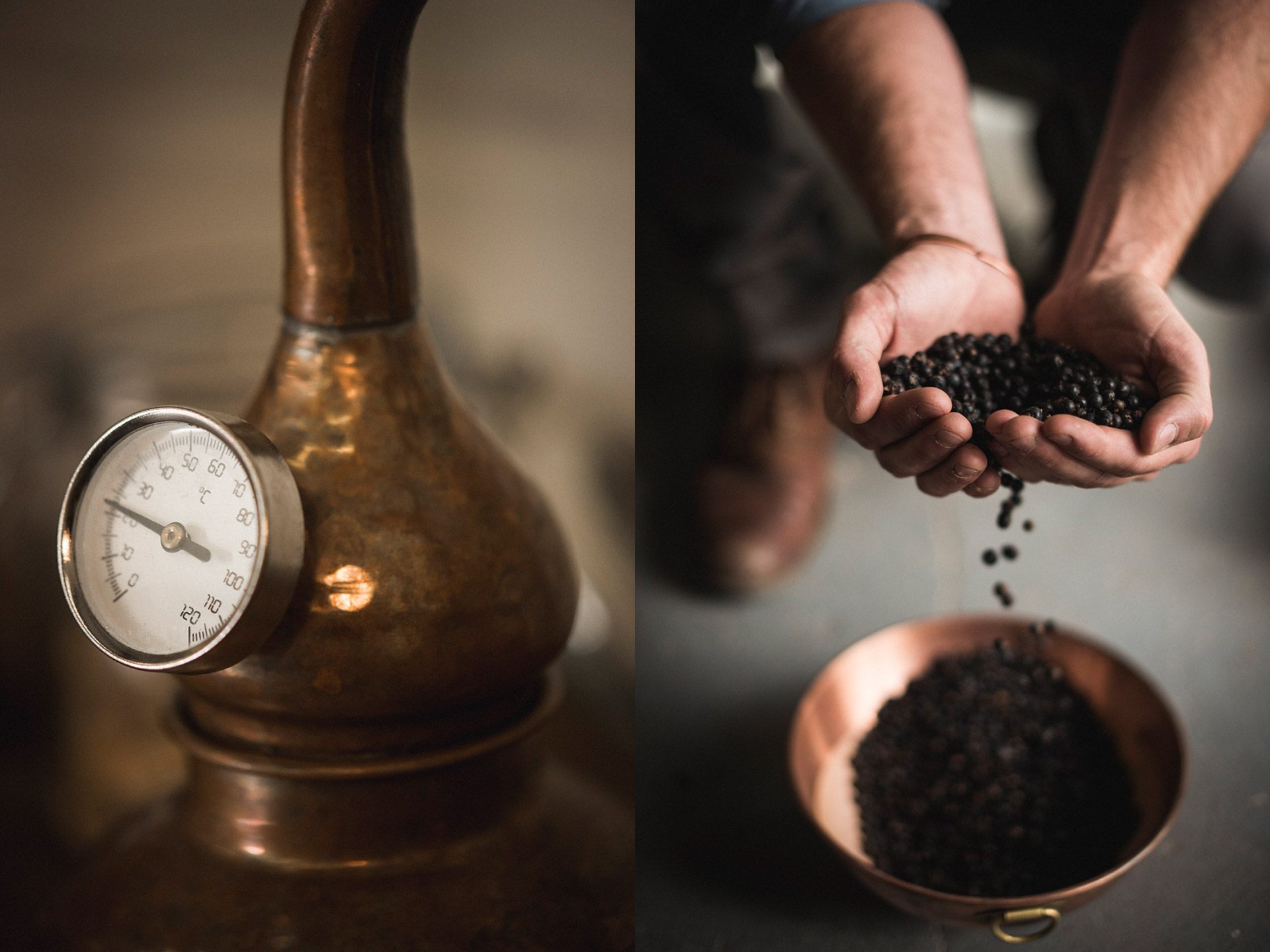
For Conker Gin, the eureka moment came when Holloway realised that he couldn’t buy a local G&T, despite the fact that there are craft brewers and distillers popping up all over the country. He knew right away that distilling was what he wanted to do and (despite no formal qualifications) began distilling almost instantly in December 2013.
Holloway sought the help of Summer Fruitcup’s David Smith when working on his recipe. They looked at recipes together and explored the flavour journeys the gins Holloway was creating seemed to be taking. Smith also helped Holloway develop his palate for picking out individual botanicals, an area that too few forget to do. It’s an important part of distilling (and cooking, even), as it through an ability to discern and articulate what you can taste that one vastly improves their ability to balance new recipes and ideas. Eventually, they settled upon recipe 38 (though Holloway went through 45 in total).
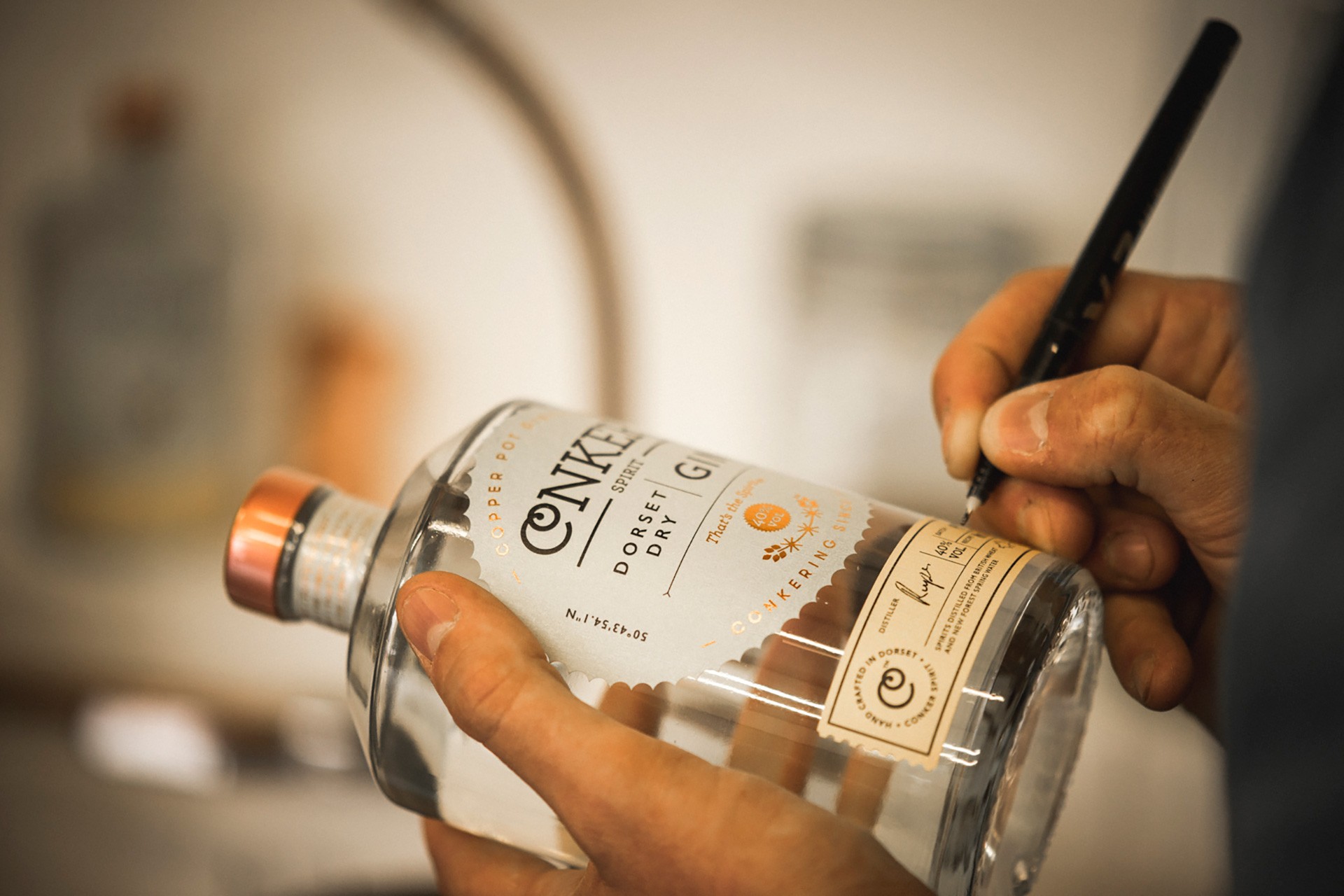
Local botanicals accompany a more traditional line up. Juniper, coriander, angelica, orris, cassia and Seville orange suggest a line up similar to any London classic, but this is livened up with lime peel which, says Holloway, “add a really nice, crisp, almost dry sweetness that balances out the very caramelised orange of the Seville orange.” The botanicals get a Dorset twist from dried samphire, elderberries and hand harvested New Forest gorse flowers, which are picked and dried in March and April to be used throughout the year.
Initially, all of the ingredients were added, along with the base spirit and New Forest spring water, to Conker Spirits’ two 30-litre alembic copper pot stills – Aunt Fanny and Pumpkin – and left to rest for 12 hours. Demand has called for a bigger rig, though, so production has been upgraded to bigger distilling units, although the method has remained largely unchanged. The Stills are heated until all of the alcohol evaporates away from the botanicals, taking their essential oils and flavour with it.
The resulting distillate is at a strength of 80% ABV. The hearts cut is left to sit for two weeks before Holloway blends it to 40% bottling strength with New Forest spring water.
This process takes around 12 hours, and while initially Holloway was only producing 60 bottles a day, the newer kit and a higher botanical intensity means he’s able to process a few hundred per still per day. Basically, Holloway now produces a concentrate which can be mixed with more alcohol and then watered down to bottling strength. Many producers are snobby about the multi-shot process, but we can’t say we ever noticed a change in quality between then and now…
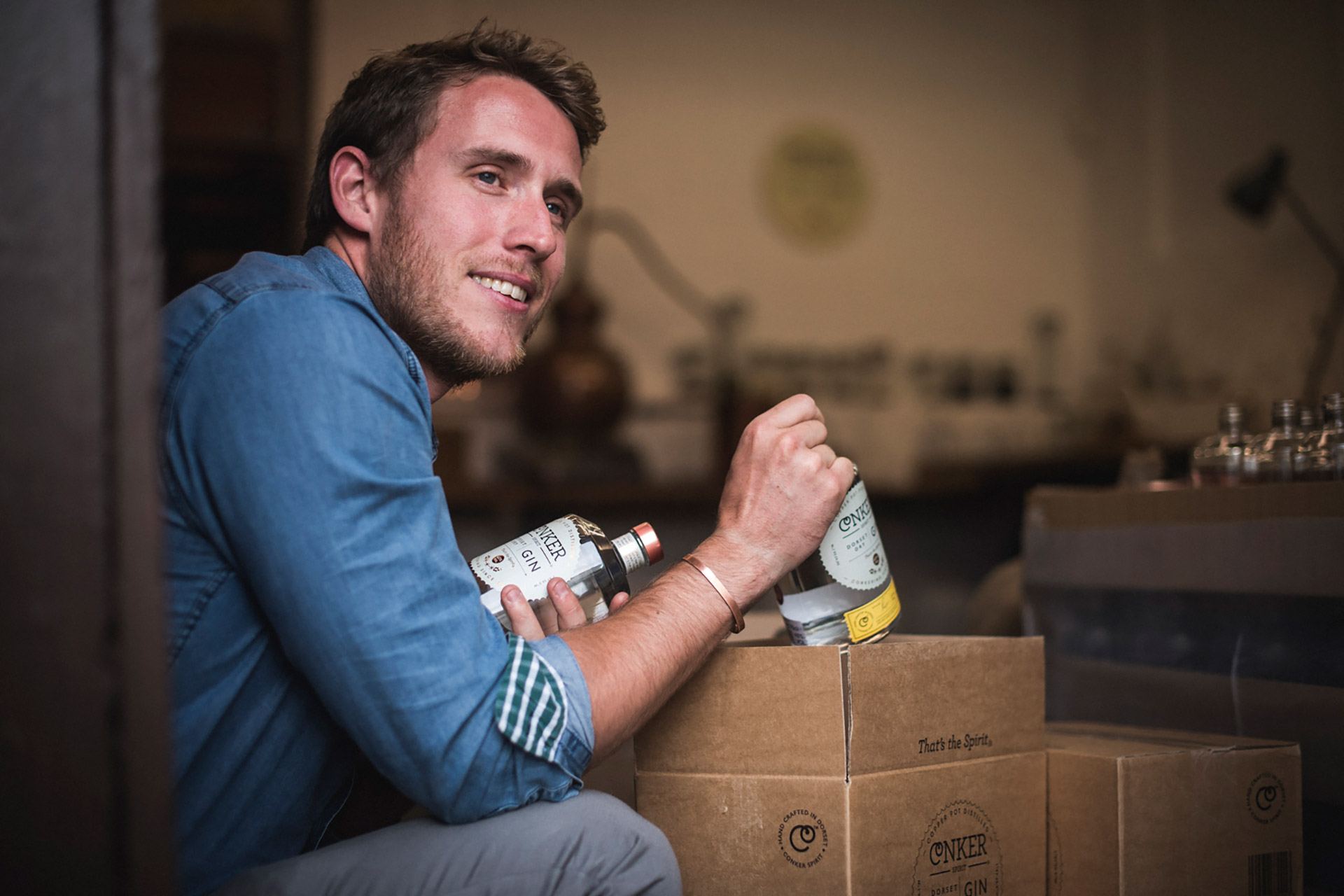
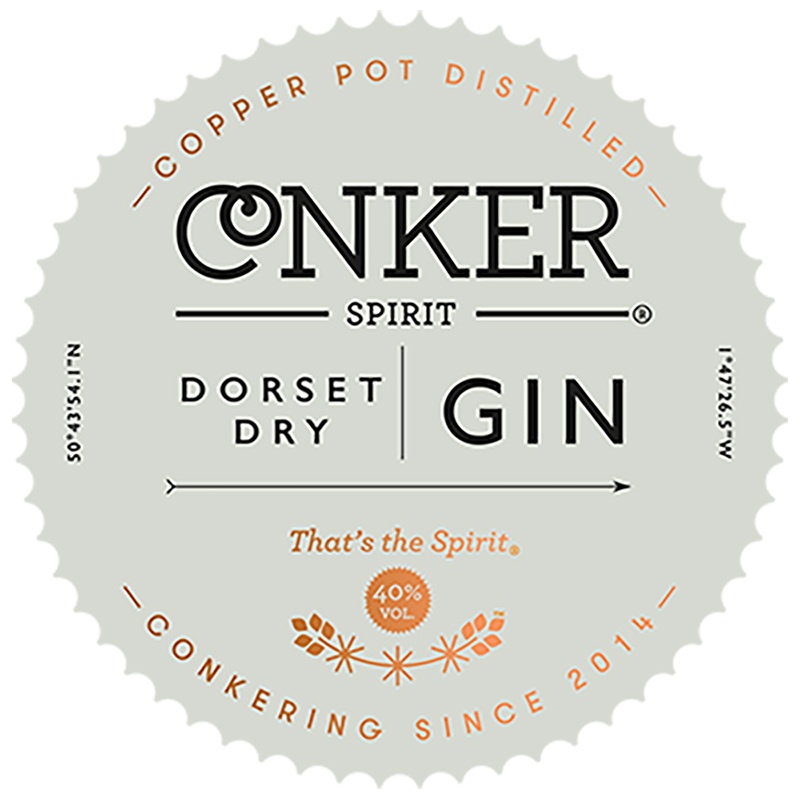

 Privacy Policy - your information will never be shared
Privacy Policy - your information will never be shared